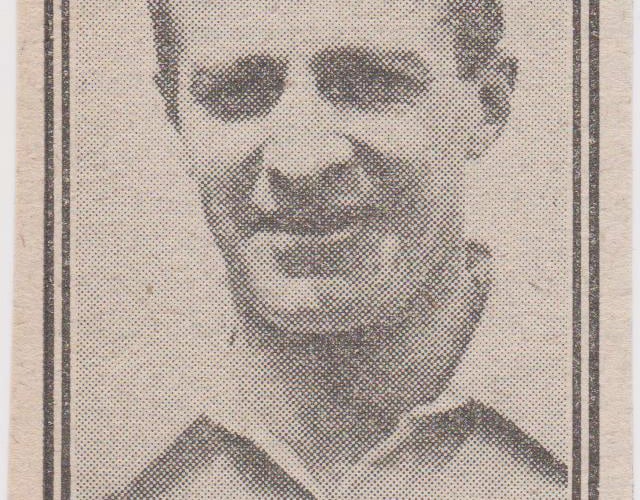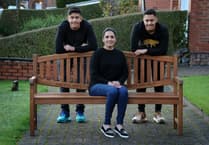A FEW weeks ago, Peeps into the Past looked at aspects of the lives and good works of Frederick Stoop and his wife Agnes when they lived at West Hall, near Byfleet, between 1890 and the mid-1930s. Mention was also made of their eldest son, Adrian Dura Stoop.
This time, reader Martin Keys gives details of Adrian Stoop’s life, and points out his unusual middle name was the maiden name of his paternal grandmother. It was a family tradition that the eldest son was called Adrian.
The family were of Dutch descent and while his father was renowned for his involvement in the financial aspects of the Anglo-Dutch oil industry, Adrian was famous for his achievements in literally another field, namely the game of rugby.
The eldest of seven children, Adrian was born in London in 1883 before the family moved to West Hall. He went to Rugby School in late 1897 and honed his skills in the game while there.
In 1901, as he left Rugby for Oxford University, he joined the Harlequins club, despite also receiving an offer from the more prestigious Blackheath club. His rugby career developed rapidly over the next few years, and in 1905 he joined the English national side playing in the Calcutta Cup (England versus Scotland) match.
During this time he developed the techniques and tactics of modern rugby. He was the first England captain to lead his team onto their new home ground at Twickenham in 1910.
On the 1911 census he is shown as acting head of the household at West Hall (in the absence of his parents) and his profession is given as barrister. In 1914 he became a second lieutenant in the 1st/5th Battalion, the Queen’s Royal (West Surrey) Regiment.
Soon after the First World War had begun the battalion was posted to India. During his time there he came to know Audrey Needham, destined to become his wife. After about a year in India the battalion was posted to Mesopotamia (present-day Iraq) and arrived in Basra on 7December 1915.

The following 18 months passed in long periods of relative inactivity and a few skirmishes with Turkish forces. In early 1917, Adrian took leave and made the trip back to India to visit his now fiancée, Audrey.
He returned to Mesopotamia and on 14 September the battalion left Baghdad and moved up in an attempt to take the town of Ramadi. On 29September 1917, as a company commander, he led his Lewis gun section in the capture of Faraja Ridge and the fall of Ramadi followed.
But Adrian was severely wounded in the attack and lost a lot of blood. He required several months to recuperate and had not long returned to the battalion in November when he was struck down by a severe bout of malaria. His active war service was all but over.
He went back to India on leave and on 8 May 1918 he married Audrey in Bangalore. In June it was announced he had been awarded the Military Cross for the attack on Ramadi, where he had demonstrated “conspicuous gallantry and devotion to duty”.
He returned to the battalion and despite the Armistice in November 1918, it was nearly a year later that Adrian, Audrey and their young son Adrian Frederick Stoop (who had been born in India in 1919) returned to their home in Byfleet.
In 1921, Adrian and his wife bought their own house, Hartley Grange, in Hartley Wintney, Hampshire. His son Adrian was, in due course, to follow his father both to Rugby School and Oxford and then into the army in the Second World War as a lieutenant, but was killed in action in Italy early in 1944.
Adrian Dura Stoop returned to Harlequins and continued to play for them. In 1932 he was president of the Rugby Football Union and continued playing for Harlequins up to 1939, when he was aged 56!
In 1939 he was still living in Hartley Wintney and was described as a man of private means and captain (retired) 5th Battalion Queen’s Regiment Territorial Arm. His wife had a role as an ARP ambulance driver.
He appeared for Harlequins 182 times (143 times as captain) scoring 86 tries. He also won 15 caps for England. He was president of Harlequins between 1920 and 1949 and the club’s ground at Twickenham was named The Stoop in his honour.
His younger brother, Frederick MacFarlane Stoop (aka Tim Stoop), also played for Harlequins and England.
Adrian died at his home on 27 April 1957 aged 74 and was buried in Hartley Wintney.
* IF you have some memories or old pictures relating to Woking and its people, call David Rose on 01483 838960, or drop a line to the News & Mail.
* DAVID ROSE is a local historian and writer who specialises in what he calls “the history within living memory” of people, places and events in the west Surrey area covering towns such as Woking and Guildford. He collects old photos and memorabilia relating to the area and the subject, and regularly gives illustrated local history talks to groups and societies. For enquiries and bookings, please phone or email him at [email protected].




